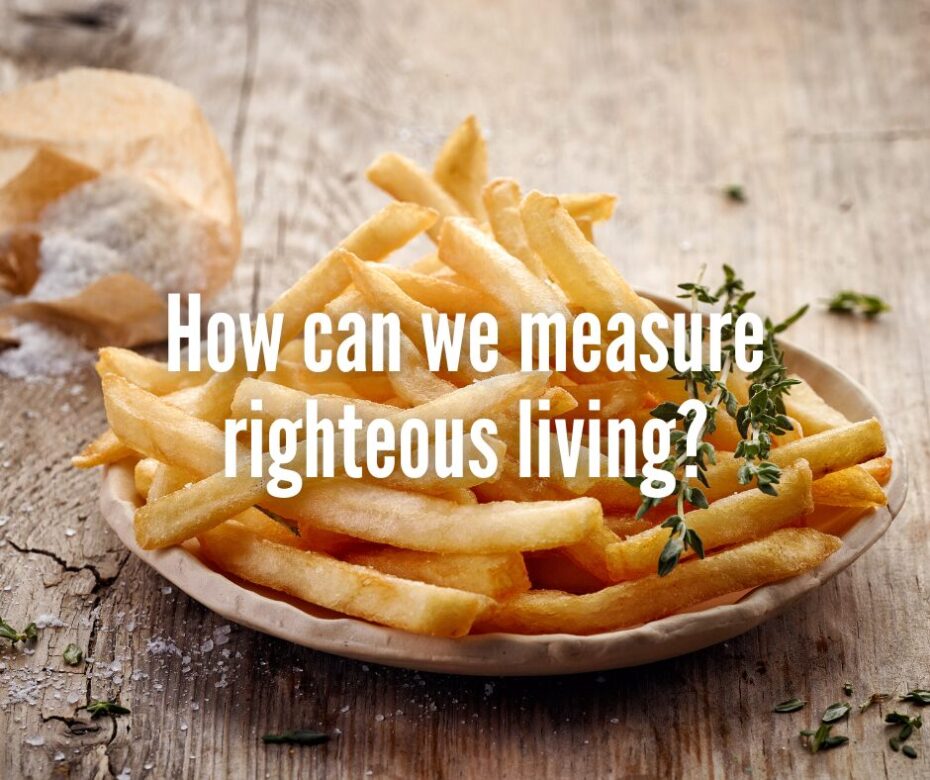Whenever I order a hamburger, I always ask for a side of fries. I am always curious to see how many fries I get. I’m disappointed when they don’t pile them on. I will usually tell anybody who is listening, “They didn’t give me enough fries.”
In Luke 5, the Pharisees order up something they want. My analogy breaks down a little, though. These religious leaders are also the ones who provide what they want. When their order is first given, there’s not enough. So, they pile on some more.
In Luke 5:27-30, the Lord enters the home of Levi to eat with Levi and some friends. Levi was a tax collector. We know him better as Matthew. At the time of this event, Matthew was considered a notorious sinner because of his profession. His “friends” were also tax collectors and other types considered sinners by the Pharisees.
The religious elite could not believe that Jesus would go into Levi’s house. This was a scandal in their eyes. Their religious sensitivities would not allow them to go inside with such supposedly evil people. Godly people simply did not do that. But Jesus not only went into that house; He actually ate with the people gathered there. No respectful religious leader would even consider sharing a meal in fellowship with a tax collector or his friends.
Instead, these Pharisees stood outside and watched what was happening. Their gaze was one of disapproval. They judged the Lord’s actions and concluded that He was not as righteous as they were. In fact, they lumped the Lord in with those they considered gross sinners.
In other words, they ordered themselves up a side of self-righteous legalism. They had developed their own set of rules, visible to men, that allowed them to appear holy in the eyes of others. As they stood outside Levi’s house, they felt some satisfaction.
But that wasn’t enough legalism to suit their needs. They ordered themselves up some more. The OT designated only one day for fasting. Through the years, the Jews added four more. But even that was not enough to feed the Pharisees’ religious pride. They fasted two days every week and let it be known when they were doing so. In their own eyes, it was a great way to measure their devotion to God.
Not only was Jesus eating in the wrong place with the wrong people, but the Pharisees judged Him for even eating at all (Luke 5:33)! Evidently, the party in Levi’s house was going on during a time when the religious leaders were fasting. You can almost picture the Pharisees pointing out to others that while they were fasting, Jesus was partaking of a feast.
But even that amount of legalism wasn’t sufficient. The Pharisees wanted to feed their arrogance even more. They pointed out that Jesus didn’t pray the way they did. If legalistic practices were an order of fries, I think they would have been pleased with how many they’d piled on their plate.
Of course, the whole picture is disgusting. These men were proud of how they had cleaned up their outward lives in order to appear righteous before the people. They did not realize that they were blind to their own sinfulness. They were so blind that they thought they were holier than Christ Himself!
That is what legalism does. Some will look at various outward activities and try to convince themselves that because they are so much better than others, their good works prove that they’re saved from hell. Unfortunately, even believers who know they have been saved by grace can fall victim to legalistic practices. In their own minds, the way they dress, what they eat or drink, or how many minutes they pray–to name just a few outward practices–demonstrate that they are better than other believers.
The bottom line is that we can be just like those fasting, praying, but arrogant Pharisees outside Levi’s home. A huge plate of fries isn’t good for us. Neither is a plate of legalism. If we aren’t careful, we might just pile it up real high.


